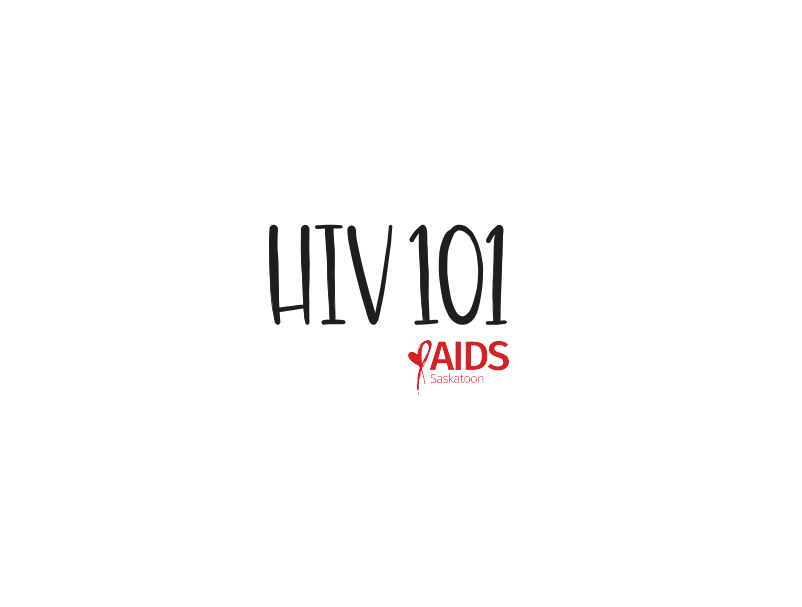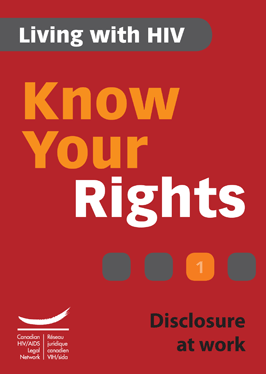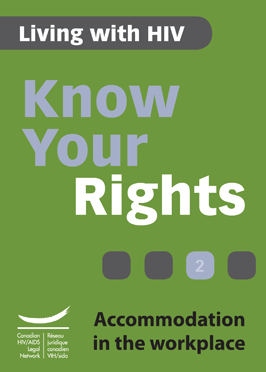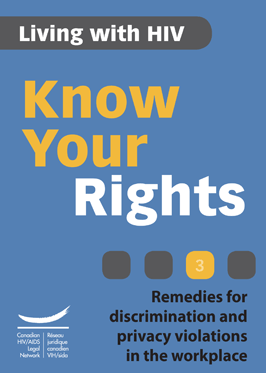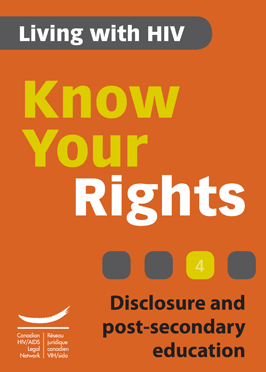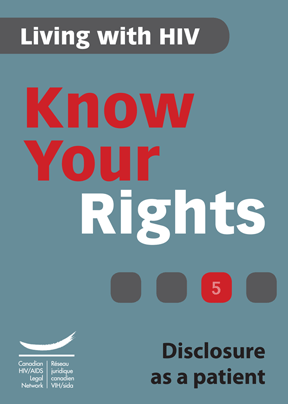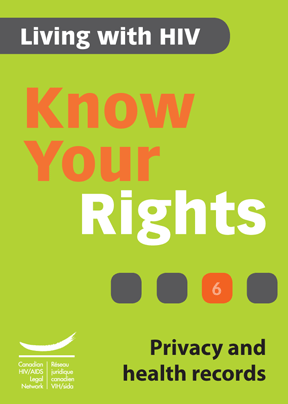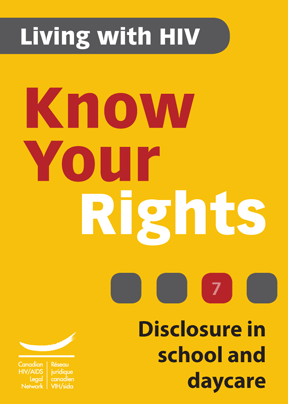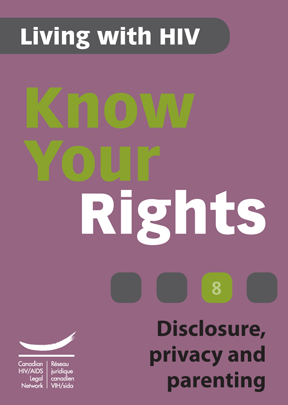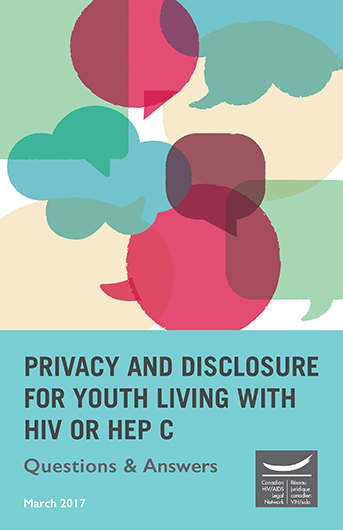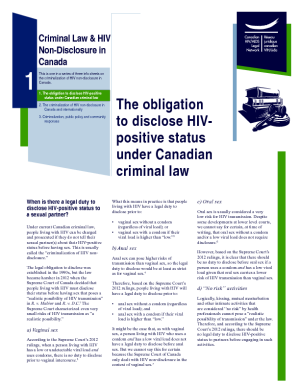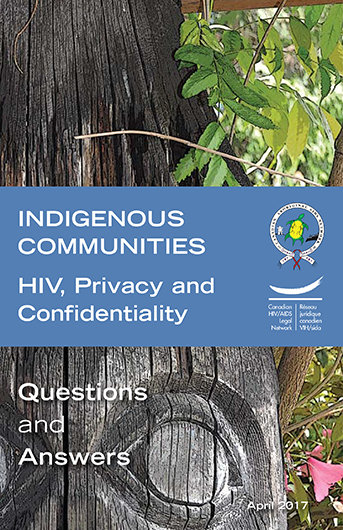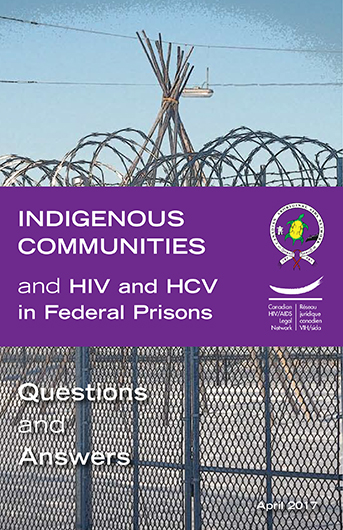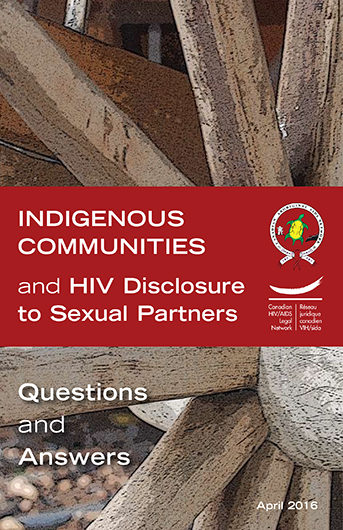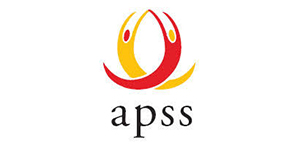HIV is a virus spread through blood, bodily fluids containing blood and breastmilk. Untreated, HIV weakens the body’s immunity system making it difficult to fight off other serious illnesses.
About HIV
HIVstands for
Human Immunodeficiency Virus
AIDS stands for
Acquired Immunodeficiency Syndrome
HIV is a virus that weakens a person’s immune system. Without treatment, HIV will progress to AIDS (usually in about 5 to 20 years). A person who has progressed to AIDS will have a very weakened immune system and may not be able to fight off infections that a healthy person could.
HOW IS HIV PASSED?
Anyone who is exposed can get HIV, regardless of their age, culture, gender or sexual orientation.
Most people infected with HIV have no symptoms at first, and an infected person with no symptoms can still pass HIV to someone else.
The HIV virus is present in the blood, semen (including pre-cum), rectal fluid, vaginal fluid, and breast milk of an infected person. HIV can only be passed when these body fluids of an infected person get into the blood stream of another person through a break in the skin, the opening of the penis, or the wet linings of the rectum, vagina or foreskin.

HIV can be passed:
HIV is most often passed through:
Unprotected sex
sharing needles used to inject drugs.
HIV can also be passed:
sharing tattoo & body piercing equipment
sharing acupuncture needles
to a fetus or baby during pregnancy, birth or breastfeeding.
HIV cannot be passed:
Shaking hands
Sharing food, clothes, or towels
Hugging, kissing, coughing or sneezing
Swimming in pools or hot tubs
Using toilet seats or water fountains
How can I protect myself and my partner(s)?
There is no vaccine for HIV, but there are things you can do to avoid getting or passing HIV.
1
Get routine STI testing.
Get tested before you have sex with a new partner, whenever you or your partner(s) have an STI symptom or yearly if you haven’t had an STI test in the last 12 months.
2
Use condoms or other barrier devices.
Use condoms every time you have vaginal or anal sex, and a condom or other barrier device every time you have oral sex.
3
Talk with your partner(s).
Talk with you partner(s) about your STI status, the types of sex you want to have, and how you can protect one another.
4
Consider Pre-exposure Prophylaxis (PrEP)
Talk with your doctor about PrEP if you are at high risk of being exposed to HIV.
PrEP
PrEP is an HIV prevention option for people at risk of exposure to HIV through sexual activity or needle sharing. PrEP isn't a vaccine and doesn’t provide immunity to HIV. When the PrEP medication is in your system, it can stop HIV from infecting and spreading through your body. PrEP doesn’t protect you from other STIs, so it’s still important to use a condom every time you have sex to protect yourself and your partner(s).
People taking PrEP need to remember to take the medication as prescribed and follow up with their health care provider every 3 months. Some people taking PrEP experience side effects including nausea, bone and kidney function changes. Depending on how you are being exposed to the virus, PrEP can take up to a few weeks to become effective in preventing HIV transmission.
Getting Started on PrEP
PrEP is available through some family doctors, nurse practitioners & pharmacists. Call ahead to find out if this service is available from your regular care provider.
If PrEP isn’t available from your health care provider, you can get a prescription at many sexual health clinics across Saskatchewan.
KNOW YOUR HIV STATUS
Living with HIV
There is no cure for HIV, but there are treatments. With medications taken daily, most people with HIV can live a healthy, long life and lower the risk of passing HIV to someone else.
Cost should never be a barrier to treatment. Saskatchewan Health covers most of the costs of HIV medications. Canadian national benefit programs and provincial benefit programs in Saskatchewan also offer coverage for some residents.
If you are HIV+, visit your health care provider regularly, and take treatment as prescribed (including medication) , it is possible to have an undetectable viral load. Your viral load is the amount of HIV virus in your blood stream. Having an undetectable viral load does not mean you are cured of HIV, but it does mean you will be healthier and you won’t be able to pass the virus to your sexual partner(s). Your health care provider will provide regular blood tests to track your viral load to make sure it stays undetectable.
Positive Living Program (Saskatoon)
The Positive Living Program provides out-patient care including: clinical assessments, education, counselling, and coordination of care at no cost for persons who have tested positive for HIV and/or Hepatitis C. PLP services are based out of Saskatoon (serving central and norther areas), however the program will assist people from other parts of Saskatchewan to find services in their geographic area.
Positive Care Program (Prince Albert)
The Hepatitis C & HIV Positive Care Program provides education, support and advocacy for individuals living with HEP C and/or HIV and their loved ones including: referrals to addictions programs, mental health services, home care, housing support and education. Physician support for treatment is available by appointment. All services are accessed by self-referral or referral from any health care provider. Positive Care Program services are based out of Prince Albert, however the program will assist people from other parts of Saskatchewan to find services in their geographic area.
HIV Related Rights
For people living with and affected by HIV.
HIV & Hep C Organizations
SK HIV Collaborative
The HIV Strategy , in collaboration with local service areas, Ministry of Health, First Nations Inuit Health Branch, Northern Inter-Tribal Health Authority, and other relevant stakeholders to promote quality client care for persons with HIV, promote HIV prevention and support services, and provide resources for health care providers related to HIV.
Positive Living Program (Saskatoon)
The Positive Living Program provides out-patient care including: clinical assessments, education, counselling, and coordination of care at no cost for persons who have tested positive for HIV and/or Hepatitis C. PLP services are based out of Saskatoon (serving central and norther areas), however the program will assist people from other parts of Saskatchewan to find services in their geographic area.
Positive Care Program (Prince Albert)
The Hepatitis C & HIV Positive Care Program provides education, support and advocacy for individuals living with HEP C and/or HIV and their loved ones including: referrals to addictions programs, mental health services, home care, housing support and education. Physician support for treatment is available by appointment. All services are accessed by self-referral or referral from any health care provider. Positive Care Program services are based out of Prince Albert, however the program will assist people from other parts of Saskatchewan to find services in their geographic area.
The PLWA Network
The Persons Living with AIDS Network of Saskatchewan is an Indigenous community-based, non-profit organization that provides care, support and education while promoting wellness to people affected by HIV/AIDS. PLWA presently serves Saskatoon and the province of Saskatchewan
Prairie Harm Reduction (formerly AIDS Saskatoon)
Prairie Harm Reduction is a community-based, harm reduction organization, dedicated to providing support, prevention, and education services for people living with, affected by, and vulnerable to HIV, AIDS & Hep C.
Know Your Status
Know Your Status is a Saskatchewan-wide initiative that aims to reduce the number of new HIV and Hepatitis C transmissions while connecting people living with HIV or Hepatitis C to treatment and care. Know Your Status promotes HIV and Hepatitis C testing as that is the only way to “know your status”.
APSS
AIDS Program of Southern Saskatchewan is a trusted leader in HIV/AIDS and Hep C education, prevention, support and care. They provide relevant and accessible services and programs, and foster connections for individuals, families and communities affected by, living with or at risk of HIV/AIDS and Hepatitis C.
All Nations Hope Network
All Nations Hope Network is network of Indigenous people, organizations and agencies in Regina SK, who respectfully strive to provide support and services to our First Nations, Métis and Inuit families and communities who are experiencing HIV/AIDS and Hepatitis C.
CAAN
The Canadian Aboriginal AIDS Network is a national forum Aboriginal peoples to wholistically address HIV and AIDS, HCV, STBBIs, mental health, aging and related co-morbidity issues. With a focus on the empowerment of Aboriginal people, CAAN is committed to addressing the issues of HIV within an Indigenous context.
AHA Centre
The Aboriginal HIV/AIDS Community-Based Research Collaborative Centre (AHA Centre) is a national, Indigenous-led collaborative research centre housed at the Canadian Aboriginal AIDS Network (CAAN). The AHA Centre supports HIV and AIDS Community-Based research conducted in Aboriginal communities across Canada.
CATIE
CATIE strengthens Canada’s response to HIV and hepatitis C by bridging research and practice, connecting healthcare and community-based service providers with the latest science, and promoting good practices for prevention and treatment programs.
HIV Legal Network
The HIV Legal Network promotes the human rights of people living with, at risk of or affected by HIV or AIDS, in Canada and internationally, through research and analysis, litigation and other advocacy, public education and community mobilization.



